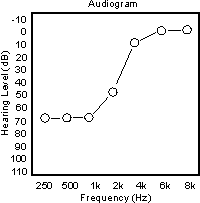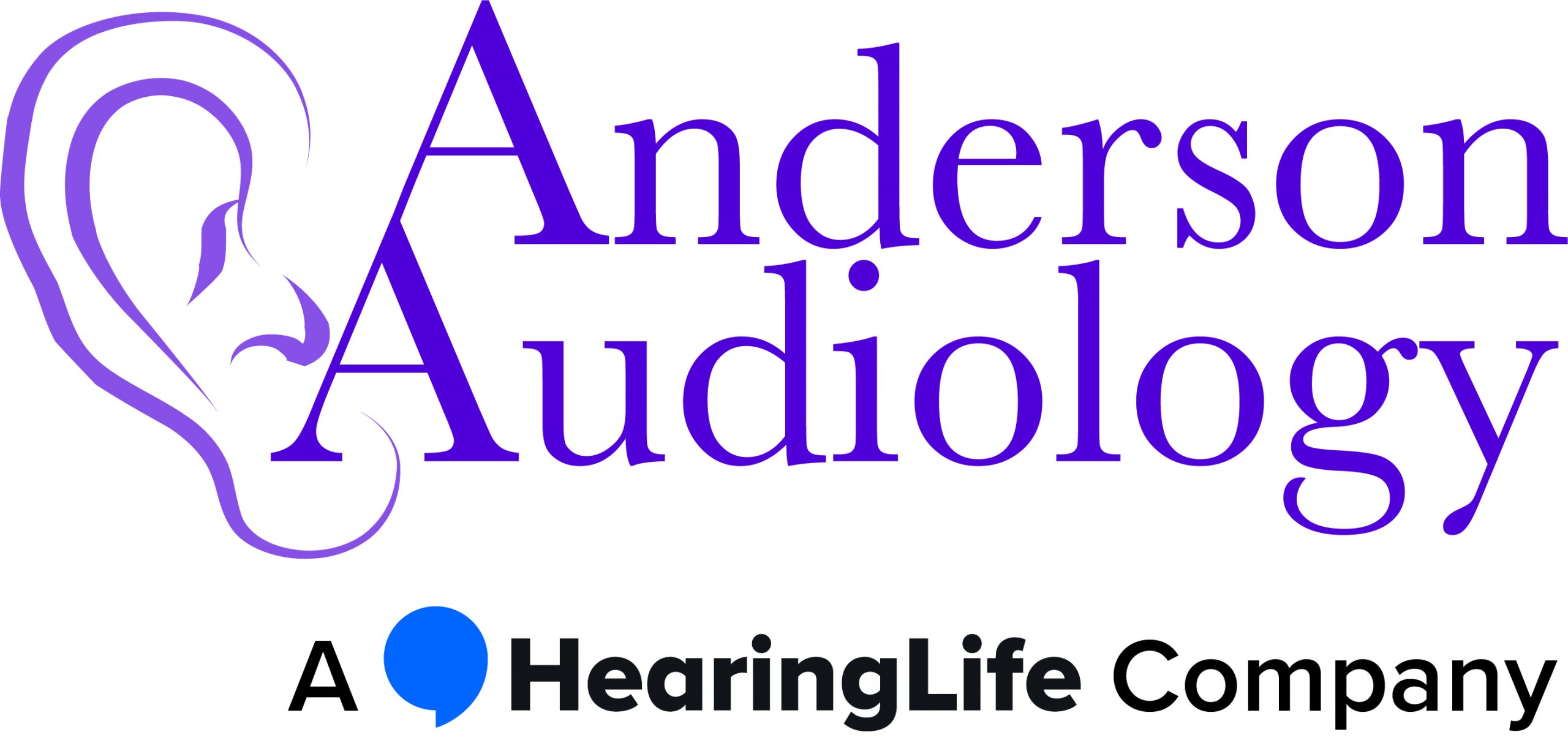Reverse-Slope Hearing Loss
Reverse-slope hearing loss (RSHL) is not the most common type of hearing loss, but it is still important to understand what it is. RSHL is also called low-frequency hearing loss and is not easily recognized. If you have this type of hearing loss, it makes it difficult to hear sounds on the lower register, for example, deep male voices. Read on to find out more about reverse-slope hearing loss, the causes, symptoms, and treatment options.
What is Reverse-Slope Hearing Loss?

Reverse-slope hearing loss gets its name from the shape of the audiogram chart, pictured above; it looks like a reverse ski slope. It is the opposite of high-frequency hearing loss (inability to hear high-pitched sounds) which is one of the most common types of hearing loss. As with any type of hearing loss, there are varying degrees. Even though it is not a very common form of hearing loss, it is important to seek treatment for reverse-slope hearing loss because it can be dangerous when you can’t hear the low rumblings of cars or machinery in certain environments. Reverse-slope hearing loss is not very common, it is only diagnosed in about one out of every 12,000 people with hearing loss in the U.S. and Canada (source). Furthermore, it is difficult to detect without a hearing assessment because most people with this type of impairment don’t need to turn up the radio or television and can hear most people’s voices.
Causes of Reverse-Slope Hearing Loss
- Reverse-slope hearing loss can be genetic, or inherited through a dominant gene.
- Another cause is Wolfram syndrome or Mondini dysplasia.
- Certain diseases or problems including sudden hearing loss, Ménière’s disease, and viral infections can cause reverse-slope hearing loss.
- Anything that causes a change in pressure of the fluid in the inner ear called endolymph can cause in reverse-slope hearing loss. This change in pressure can be induced as a result of spinal or general anesthesia, intracranial hypertension, and perilymphatic fistula.
How Reverse-Slope Hearing Loss is Diagnosed
Reverse-slope hearing loss can be diagnosed by a hearing care professional or audiologist who administers a hearing assessment. The signs we look for include:
- Hearing losses of pure-tones.
- Extremely good speech.
- Poor speech perception without visual cues.
- High speech-detection thresholds
- A sensitivity to environmental sounds that are high-frequency.
- An inability to adjust the standard ski-slope hearing settings.
Reverse-Slope Hearing Loss Treatments
If you are diagnosed with reverse-slope hearing loss, it can be treated with hearing aids. Each person we treat gets a personalized assessment and recommendation. We normally recommend digital hearing aids with a multichannel, nonlinear hearing option; but will customize a hearing aid to your specific listening needs and lifestyle. Once we have you fitted with a hearing aid that is properly adjusted for reverse-slope hearing loss, you will notice what you have been missing.
Trust the Experts at Anderson Audiology
We are here for you and all your hearing health needs. If you are concerned about the possibility of hearing loss or have any questions about hearing aids, contact us at Anderson Audiology and schedule an appointment today with one of our hearing professionals at one of our five convenient audiology clinic locations in southern Nevada.
